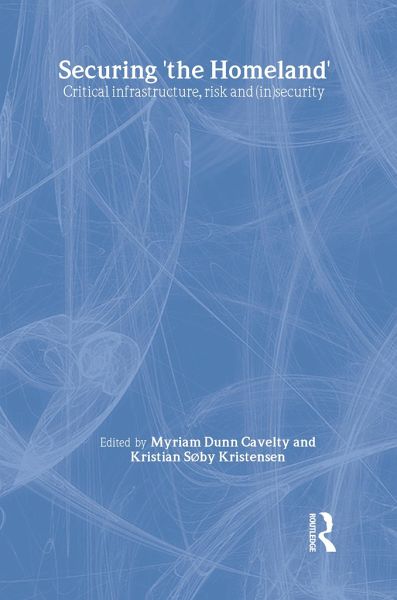
Securing 'the Homeland'
Critical Infrastructure, Risk and (In)Security
Versandkostenfrei!
Versandfertig in 1-2 Wochen
176,99 €
inkl. MwSt.

PAYBACK Punkte
88 °P sammeln!
This edited volume uses a 'constructivist/reflexive' approach to address critical infrastructure protection (CIP), a central political practice associated with national security. The politics of CIP, and the construction of the threat they are meant to counter, effectively establish a powerful discursive connection between that the traditional and normal conditions for day-to-day politics and the exceptional dynamics of national security. Combining political theory and empirical case studies, this volume addresses key issues related to protection and the governance of insecurity in the contemp...
This edited volume uses a 'constructivist/reflexive' approach to address critical infrastructure protection (CIP), a central political practice associated with national security. The politics of CIP, and the construction of the threat they are meant to counter, effectively establish a powerful discursive connection between that the traditional and normal conditions for day-to-day politics and the exceptional dynamics of national security. Combining political theory and empirical case studies, this volume addresses key issues related to protection and the governance of insecurity in the contemporary world. The contributors track the transformation and evolution of critical infrastructures (and closely related issues of homeland security) into a security problem, and analyze how practices associated with CIP constitute, and are an expression of, changing notions of security and insecurity. The book explores aspects of 'securitisation' as well as at practices, audiences, and contexts that enable and constrain the production of the specific form of governmentality that CIP exemplifies. It also explores the rationalities at play, the effects of these security practices, and the implications for our understanding of security and politics today.














